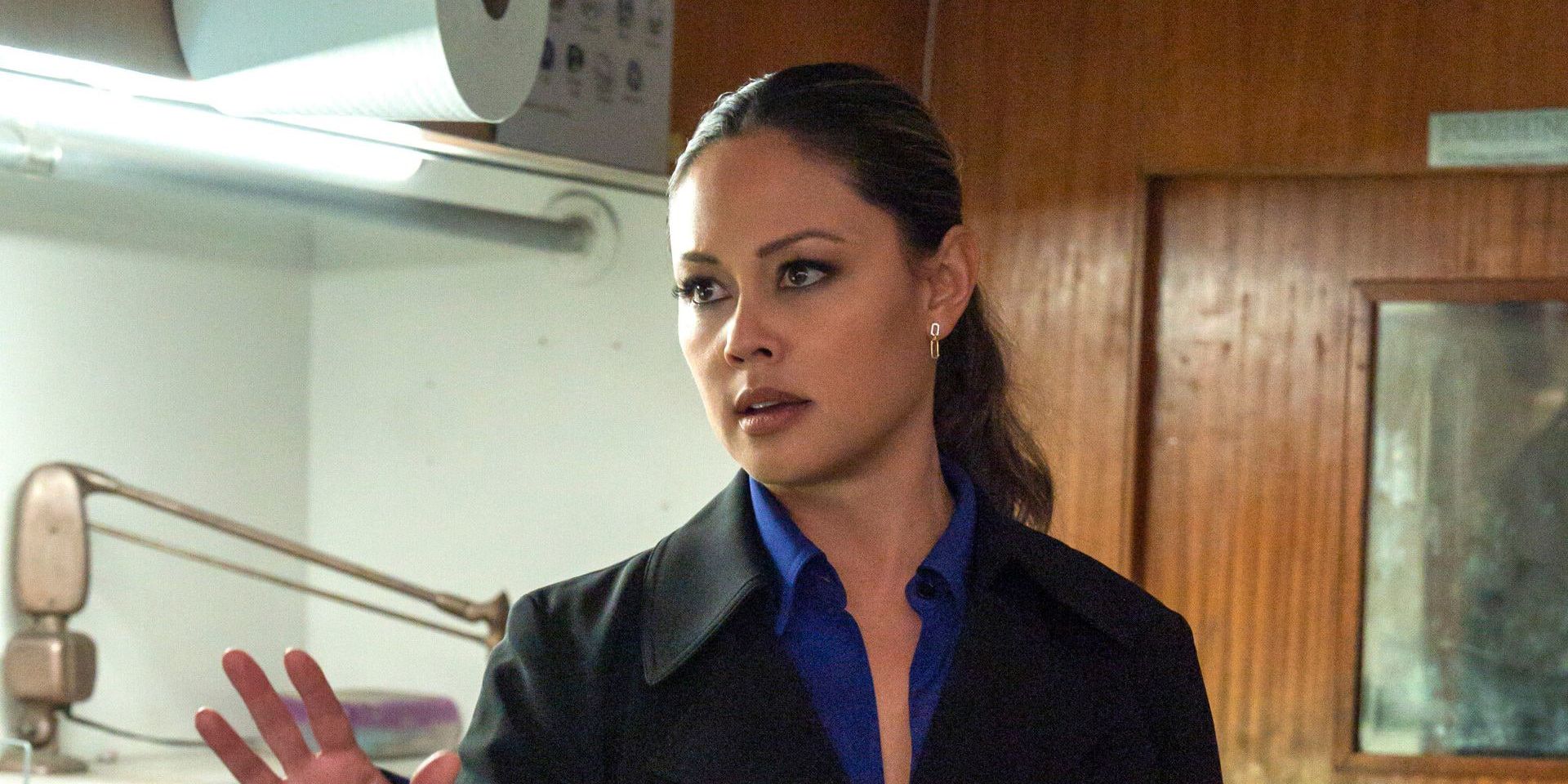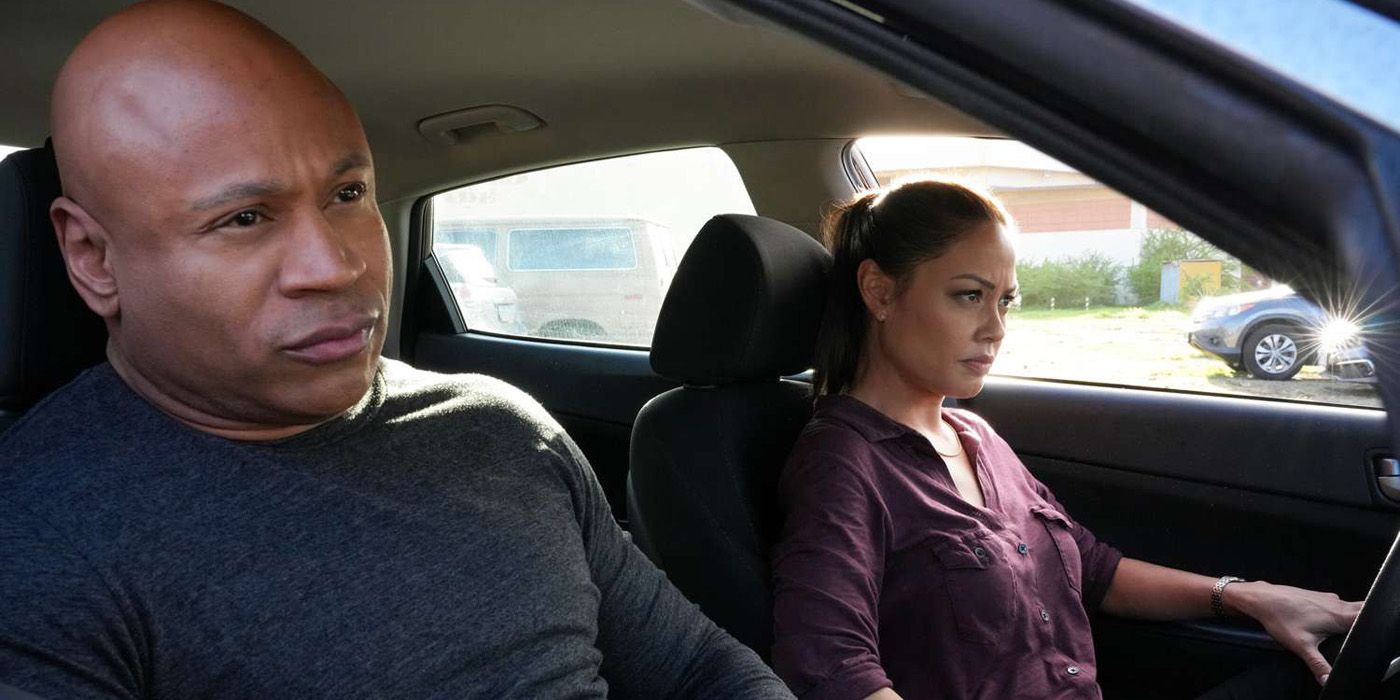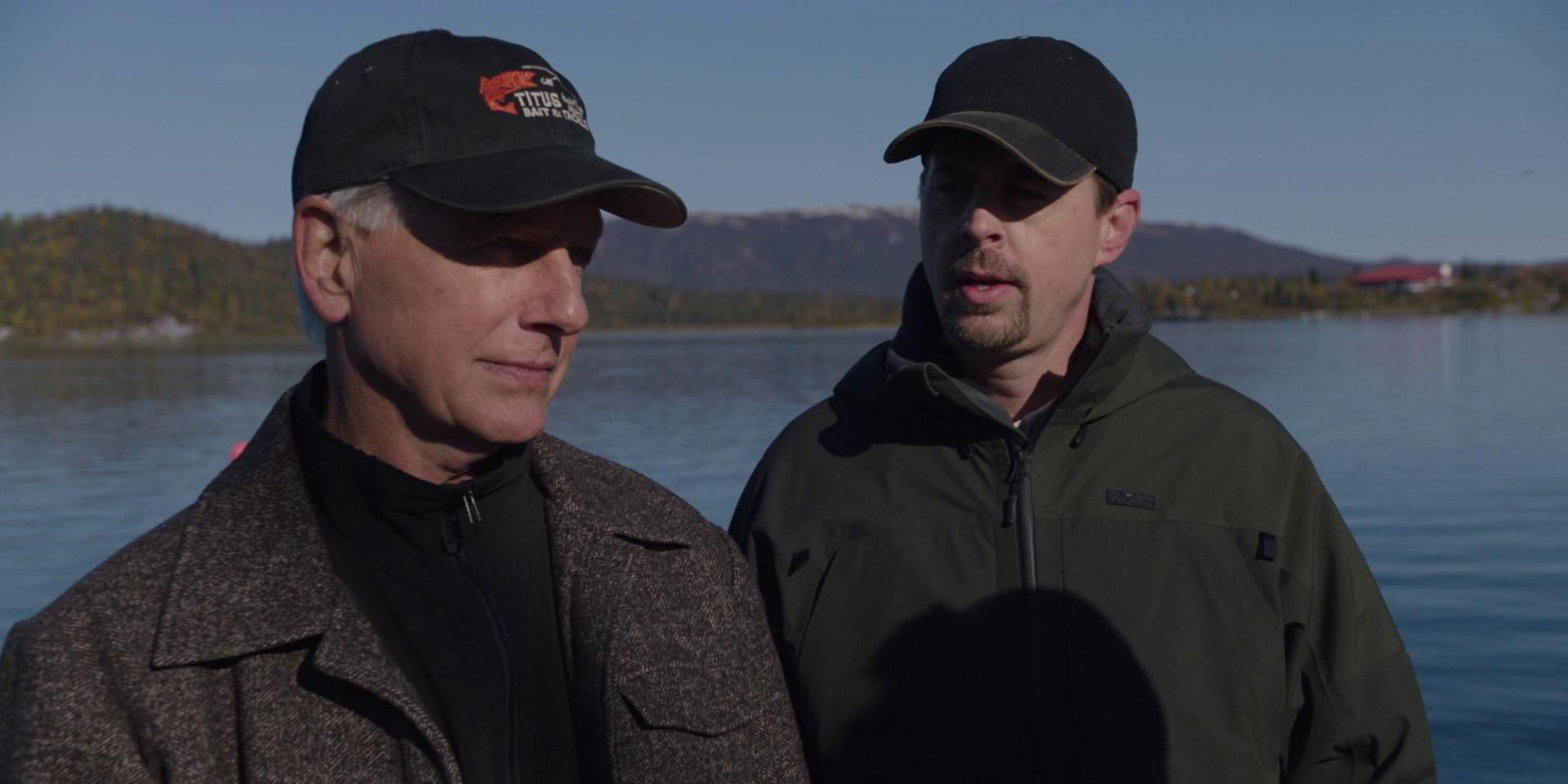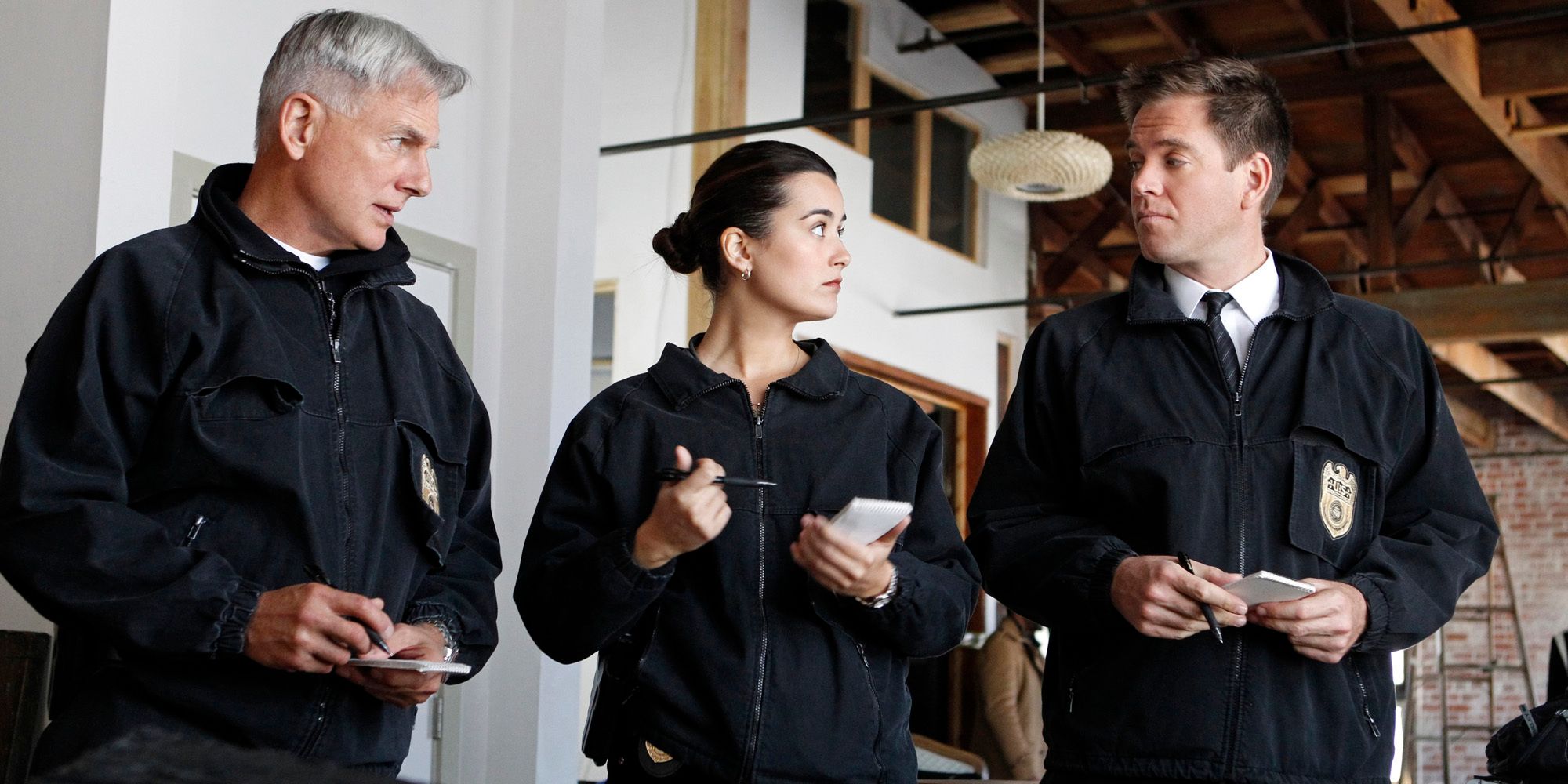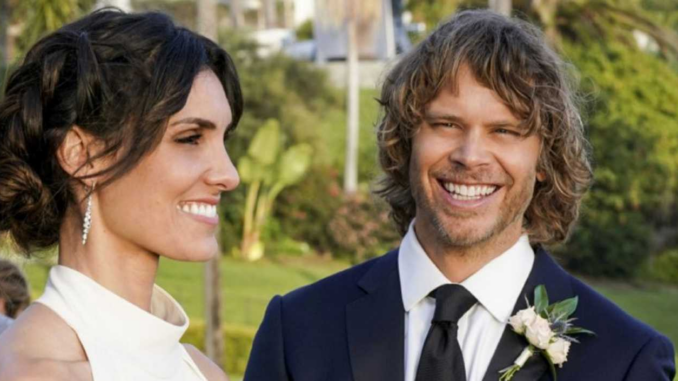
While it’s been over a month since the NCIS spinoff show was canceled, buzz continues to surround the cancelation of NCIS: Hawai’i before season 4. The island-based police procedural was a spinoff from the original NCIS show starring Mark Harmon as Leroy Jethro Gibbs. The flagship NCIS show has seen a lot of success with spinoffs throughout the years, beginning with the launch of NCIS: Los Angeles in 2009. Unfortunately, NCIS: Hawai’i has broken a franchise record, becoming the short-lived NCIS series ever with its cancelation.
The cast of NCIS: Hawai’i included Special Agent in Charge Jane Tennant (Vanessa Lachey), Jesse Boone (Noah Mills), Sam Hanna (LL Cool J), Kate Whistler (Tori Anderson), Lucy Tara (Yasmine Al-Bustami), Kai Holman (Alex Tarrant), and Ernie Malik (Jason Antoon). The decision to truncate these characters has been met with controversy. While CBS Entertainment President Amy Reisenbach has said that the decision to cancel the spinoff will not be reversed, the network recently made the decision to reverse the cancelation of S.W.A.T. ahead of season 8.
One thing that’s certain is that things are rarely set in stone in the NCIS universe. For instance, there was probably a time when viewers never thought they would see the reunion of Tony DiNozzo (Michael Weatherly) and Ziva David (Cote de Pablo), who will now be appearing in their own spinoff show: NCIS: Tony & Ziva. And just when it looked like Mark Harmon would never return to the franchise as Leroy Jethro Gibbs, NCIS: Origins was launched with Harmon as the narrator and executive producer. Were NCIS: Hawai’i to one day be revived as well, it might serve as a way to rectify some of the mistakes made with its untimely cancelation.

Special Agent in Charge Jane Tennant Was The First Female NCIS Team Lead
Other Team Leads Include Leroy Jethro Gibbs And Alden Parker
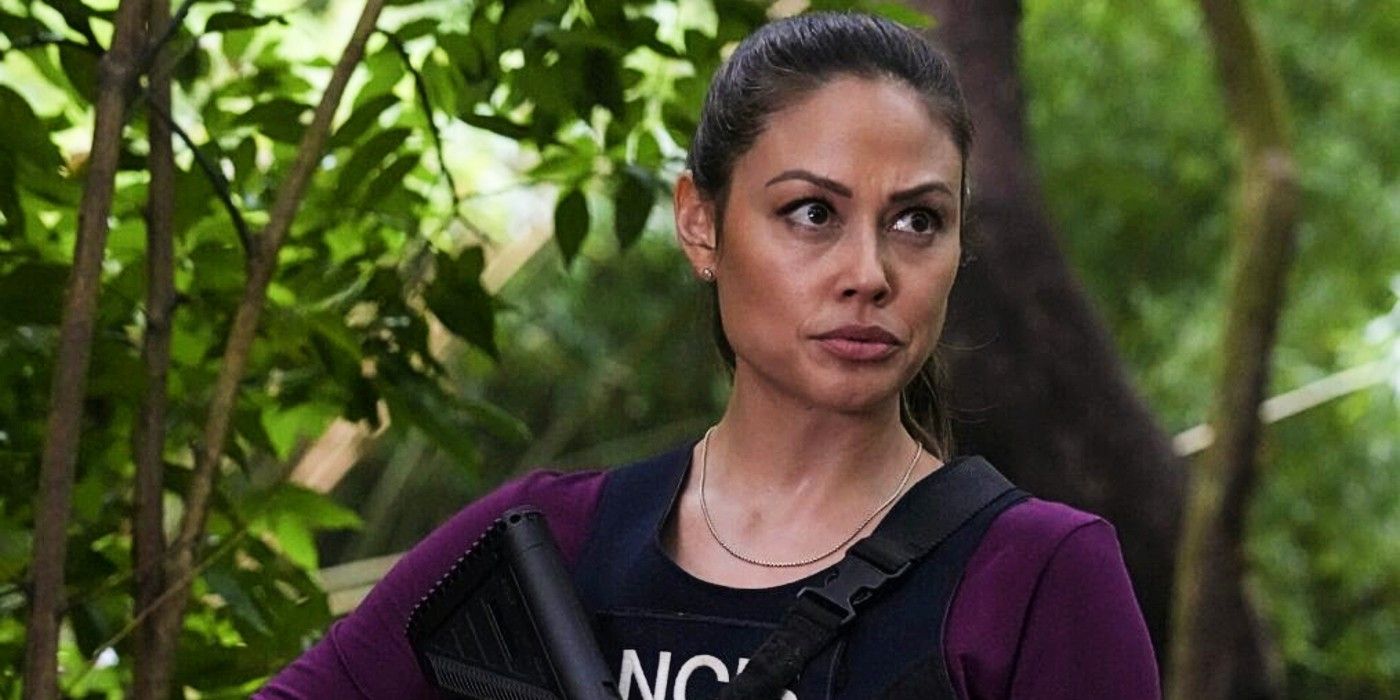
One reason that it was a mistake to cancel NCIS: Hawai’i is that the Special Agent in Charge of the NCIS: Hawai’i Field Office, Jane Tennant, was the first female team lead cast in NCIS. The role that Vanessa Lachey has portrayed since the show premiered in 2021 showcased a character who was a fierce lead for her team but also a capable and protecting mother. The duality of Jane Tennant’s character is one of the things that made the island-based spinoff stand out.
Furthermore, the unfinished Jane storyline worsened the season 3 cancelation. Heading into the conclusion of NCIS: Hawai’i season 3, Jane was just beginning to explore a relationship with her mother that delved into the actor’s personal life experiences. It’s clear that there is an abundance of opportunities to tell powerful stories while exploring Jane’s character, and that those stories will go untold if the show remains canceled.
Jane Tennant Was Also The First Asian American Lead On An NCIS Show
Vanessa Lachey Diversified The Central Team Leader Role
Another element that made Jane Tennant’s character special for the franchise and put NCIS: Hawai’i into a league of its own was that the Special Agent in Charge was also the first Asian American lead on an NCIS show. Other team leads within the franchise have included Leroy Jethro Gibbs, G. Callen (Chris O’Donnell), and Dwayne Pride (Scott Bakula). While the characters fit the roles, Jane’s character redefined the position of power.
One way the show could reverse the mistake it made by canceling NCIS: Hawai’i is to include Jane Tennant in the flagship series, centering on her character and giving her the spotlight she merits. Tennant could fill in for Parker’s replacement as Special Agent in Charge while he recovers from the leg injury he suffered in the NCIS season 21 finale. Tennant could also permanently join the flagship series, taking over for NCIS Director Leon Vance (Rocky Carroll) should he depart the show in the coming seasons.
The Show Featured Diverse Characters And Relationships
Lucy Tara And Kate Whistler’s Relationship Needs To Continue

One of the most significant setbacks for the NCIS franchise with the cancelation of NCIS: Hawai’i is the loss of the relationship between Junior Agent Lucy Tara and FBI Special Agent Kate Whistler. The romance between the female federal agents was a mainstay for the show, beginning in season 1, episode 1 of NCIS: Hawai’i.
The relationship between the women brought a positive, diversified representation of love to network television. The lack of this relationship moving forward in the NCIS franchise is a massive loss within the cancelation of NCIS: Hawai’i. The relationship between Lucy and Kate was dubbed “Kasy” by those who appreciated it most, and it was largely understood by the LGBTQ+ community as a healthy representation of love within the community.
NCIS: Hawai’i Switched Up Traditional Roles
Some Spinoff Roles Were Cast Non-Traditionally
Among the many aspects of NCIS: Hawai’i that made the spinoff unique was that it switched up roles that felt traditional and overdone for the franchise. For example, the franchise typically features a quirky female character who provides the team with deeper analysis and intel. On the flagship show, it was the team’s Chief Forensic Scientist, Abby Sciuto (Pauley Perrette), who was later replaced by Kasie Hines (Diona Rasonover). On Hawai’i, the team’s main hookup for intel was Ernie Malik, the technical analyst assigned to the NCIS Pearl Harbor office.
The show also featured Seana Kofoed as Carla Chase, a Commander in the US Navy and a Medical Examiner at the Navy’s Pearl Harbor base and for the NCIS: Hawai’i team. In the flagship series and others, a male actor is typically cast for the doctor’s role. For instance, the flagship series cast David McCallum as Dr. Donald “Ducky” Mallard in the role, with Dr. Jimmy Palmer (Brian Dietzen) eventually taking his place. Both Antoon and Kofoed’s roles were groundbreaking for the NCIS franchise.
The NCIS: Hawai’i Season 3 Finale Ended On A Cliffhanger
The Return Of Maggie Shaw Soured NCIS: Hawai’i’s Conclusion
One of the more short-term reasons that the cancelation of NCIS: Hawai’i was a mistake is that its third season ended on an unsatisfying cliffhanger. The season 3 finale otherwise served as a perfect tribute to the cast and characters, seeing them celebrate the conclusion of a dangerous case with a poolside toast. But a cliffhanger in the show’s final moment soured the conclusion.
In the episode’s final moments, Maggie Shaw (Julie White) is waiting to talk to Jane. Maggie surely has information that would have set the course for NCIS: Hawai’i season 4, which raises questions that will apparently never be answered. Not including this scene would have granted the characters a proper send-off.
Sam Hanna Was Just Getting Started At The Hawai’i Office
The Character Was Transitioning From NCIS: Los Angeles
Another reason it was a mistake to cancel NCIS: Hawai’i after season 3 is that Sam Hanna was just getting started at the Hawai’i office. LL Cool J’s character was relocated to the island-based spinoff after the cancelation of another NCIS spinoff: NCIS: Los Angeles. Sam Hanna was featured on the show for all 14 of its seasons.
The character fills a special niche within the franchise. Sam Hanna was chosen for the Los Angeles Office of Special Projects. Then, his character was chosen to lead NCIS: Elite in the Hawai’i-based spinoff. As a former Navy SEAL, Sam Hanna’s character had distinct qualities that allowed him to fill specialized roles within the NCIS network. It’s a shame his character’s stay on NCIS: Hawai’i was cut short.
The Show Didn’t Have Nearly As Many Seasons As Other NCIS Spinoffs
NCIS: Hawai’i Only Lasted For 3 Seasons
A major contributing factor regarding the confusion over the show’s cancellation is that the spinoff didn’t last nearly as long as the other location-based spinoffs the franchise has launched over the years. NCIS launched its first location-based spinoff when NCIS: Los Angeles kicked off in 2009. It continued the trend with NCIS: New Orleans in 2014.
The Los Angeles-based spinoff has the longest runtime, lasting 14 seasons until the show ended in 2023. The New Orleans-based spinoff also has a pretty good run, continuing for seven seasons before it wrapped up in 2021. A mere three seasons was much less than expected based on the franchise’s track record.
NCIS Fans Vow Not To Watch NCIS Spinoffs Over NCIS: Hawai’i Cancelation
Fans Are Saying They Aren’t Interested In Watching Other NCIS Shows
The uproar caused by devastated viewers is another signal to the NCIS franchise that the cancelation of NCIS: Hawai’i preceding season 4 was a mistake. In the aftermath of the cancelation and disappointing series finale, some dedicated NCIS: Hawai’i viewers have vowed that they won’t watch what the franchise has to offer moving forward. The fans hold out hope that CBS will reverse its decision to cancel the spinoff [via Looper.]
While the decision to cancel the spinoff may be irrevocable, it would be wise for showrunners to listen to the grievances of their NCIS: Hawai’i fans. The outcry from viewers suggests that there were many things about NCIS: Hawai’i that made it irreplaceable. The franchise could lose a dedicated portion of their fan base if they don’t make amends moving forward.
NCIS: Origins and NCIS: Tony & Ziva Could Stray Too Far From What Worked For The Location-Based Spinoffs
Location-Based Spinoffs Have Worked For The Franchise For 15 Years
Lastly, canceling NCIS: Hawai’i could be a massive mistake if the spinoffs that are destined to replace it – NCIS: Origins and NCIS: Tony & Ziva – stray too far from what worked for the franchise with its location-based spinoffs. The upcoming spinoffs are set to further explore the mainstay Major Case Response Team (MCRT) characters’ narratives. That said, revisiting their stories runs a big risk.
There’s a chance that a Gibbs’ NCIS prequel could ruin his mystery, and a similar risk is posed by revisiting Tony and Ziva’s characters. The franchise’s location-based spinoffs, like NCIS: Hawai’i, introduced new characters into the NCIS universe. The introduction of new characters gives audiences fresh perspectives within the police procedural narrative, and there’s a chance that revisiting old characters won’t be enough to propel the franchise forward.
